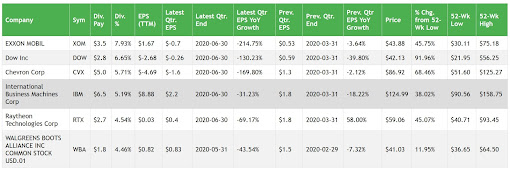Barron's has recommended Merck (NYSE: MRK) stating that the company does not get "enough credit". Merck is currently trading at $83.48. The price is currently hugging the upper part of the Bollinger Band. The money flow indicator is approaching over-bought territory and currently sits at 60. The MACD is flashing a buy signal. All the moving averages are currently flashing a buy. If there's any pullback, the stock may be a buy at $75 or $76.
Exhibit: Merck May Be a Buy at $75 or $76.
(Source: Tradingview)
Exhibit: Merck Oscillators
(Source: Tradingview)












